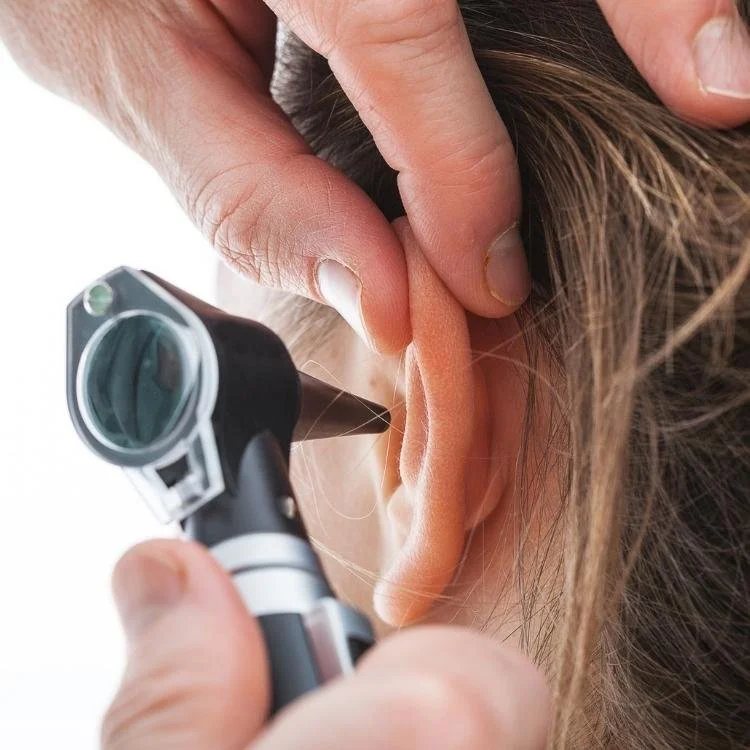External Ear Review
An external ear review provides a clear, professional assessment of the outer ear, including the pinna and external auditory canal.
This examination helps identify common issues such as earwax build-up, foreign bodies, or skin conditions, while ruling out more serious pathologies.
Our audiology team utilises advanced equipment and their clinical expertise to provide you with peace of mind regarding your ear health.
What Happens During an External Ear Review?
Your appointment begins with an extended medical case history to understand your symptoms, lifestyle factors, and any previous ear health issues.
We then carry out a video otoscopy, a gentle, camera-assisted inspection of the outer ear and ear canal.
This approach allows both the clinician and patient to view a live image of the ear canal, providing reassurance and clarity about any findings.
Key Benefits of an External Ear Review:
Detects wax build-up or foreign bodies in the ear canal
Helps identify infections, inflammation, or skin conditions
Rules out other potential pathologies early
Uses video otoscopy for precise and transparent assessment
Provides tailored advice and next steps if treatment is required
Our goal is to give you accurate information, clear advice, and confidence in your ear health.
To book your external ear review appointment today, let’s start by booking a free Auditory Health Screening
External Ear Review FAQ’s
-
You can stay connected to The Studio Goostrey in various ways listed below:
Join our mailing list (we send out the occasional updates (nothing spammy) directly to your inbox)
Follow our social media accounts
Read our blog
Contact us if you have any questions
-
It’s a professional assessment of the outer ear and ear canal, conducted using video otoscopy and a medical case history.
-
A screening is a brief overview, while an external ear review is a more detailed examination that focuses on the outer ear.
-
No, the process is painless and carried out with care using gentle equipment.
-
Yes, with video otoscopy, you can view live images of your ear canal on a large in-situ screen.
-
Typically 20–30 minutes, depending on your case history and findings.
-
We’ll explain the situation clearly and recommend next steps, which may include ear wax removal, further audiology tests, or referral if necessary.

